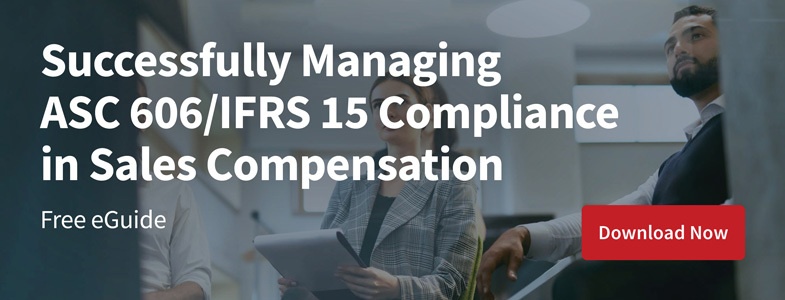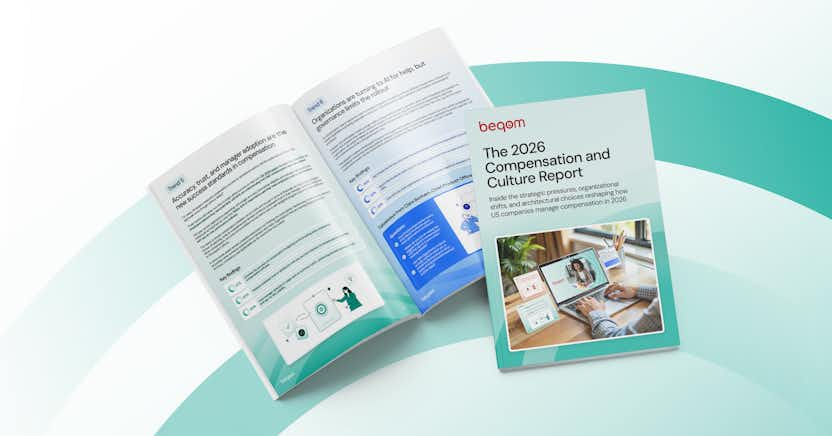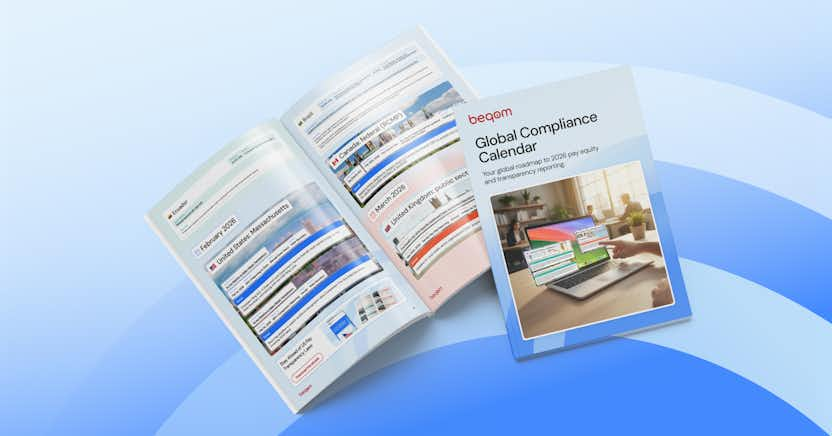Mastering ASC 606 Compliance in Sales Compensation: Your Secret Weapon

Learn more about the following beqom products
If you sell goods or services that are delivered by contract over time, no doubt you have wrestled with the complexities of complying with FASB standard ASC 606 or international standard IFRS 15 regarding revenue recognition and with the companion issue of paying commissions on these sales. Are we having fun yet? If the process is painful, don’t despair; there is an easier way.
The Two Critical Steps to Mastering ASC 606
The critical first part of the ASC 606 or IFRS 15 compliance process is to capture all the data related to sales transactions needed to correctly allocate revenue over time per the accounting requirements and to calculate and accrue for commission payments over the life of the contract. This step means capturing not just the sales transaction itself but relevant aspects of the contract terms, the service level agreement, the sales roles, and the applicable sales incentive plans, then monitoring these for changes over time.
The second critical step is processing the data correctly to achieve accurate and compliant financial reporting of revenues and to calculate and categorize commission payments in line with the revenue recognition schedule. This process requires the data sources to be reliably integrated and rules to perform the necessary calculations and allocations to be precisely applied.
And, by the way, all of this needs to be within the context of a transparent and auditable review and approval process, for purposes of good governance and regulatory compliance.
How to Transform the Process
If you are trying to address the requirements of ASC 606 or IFRS 15 using spreadsheets, you probably are encountering the typical spreadsheet limitations: errors in data or formulas, version control confusion, cumbersome consolidation, limited reporting capability, and lack of transparency and auditability. That’s on top of the typical data management and quality issues in any spreadsheet-based environment.
How can you transform the process from pain to gain? Consider what a compensation management solution can do. Robert Kugel of Ventana Research says that sales compensation management technology “can simplify tracking of the exact amount of commissions paid on contracts that extend past one year and . . . capture all relevant characteristics of the transaction, automatically calculate commissions and incentive payments, and allocate amounts according to the required accounting treatment.”
Launch Your Secret Weapon
Add compliance with ASC 606 or IFRS 15 to timely and accurate commission payments on the list of reasons to automate your sales incentive management and compensation processes. A centralized compensation platform can help by serving as the repository that pulls together all of the relevant data from a variety of sources into a single version of the truth for both finance and sales operations, providing reporting, analysis, and compliance.
A system with a rules engine also ensures more accuracy and reliability in the calculations that allocate revenue and commissions. Sophisticated sales incentive plans that are tailored to drive maximum performance become even more complex when dealing with revenue that is recognized and rewarded over time. Yet you should not have to compromise on your sales strategies because of system limitations. A flexible compensation platform can let you manage sales compensation your way to deliver bottom line results, while taking the pain out of handling financial and regulatory requirements.
Perhaps the greatest boon of an automated sales compensation system is the ease of change, as updates will automatically flow through the system. When dealing with the complexities brought about by time-based revenue recognition rules, an automated system can greatly reduce administrative time and effort while improving accuracy.
Get Started Now
To learn more about how to simplify the process of complying with ASC 606/IFRS 15 requirements in sales compensation, download our FREE eGuide.








